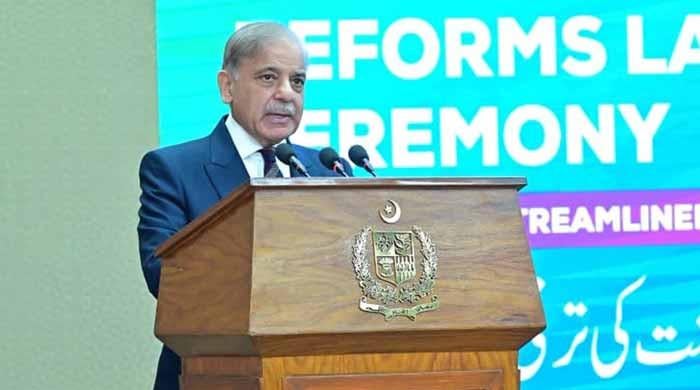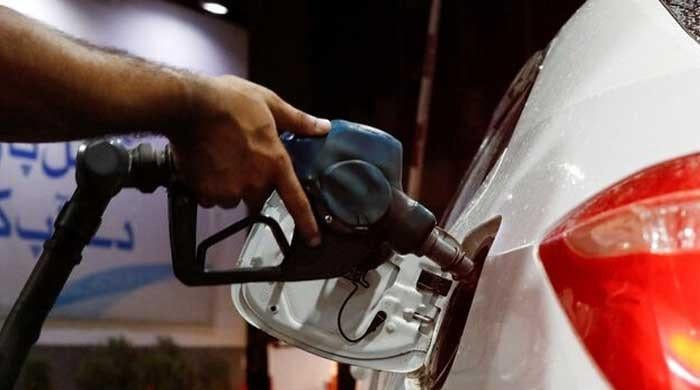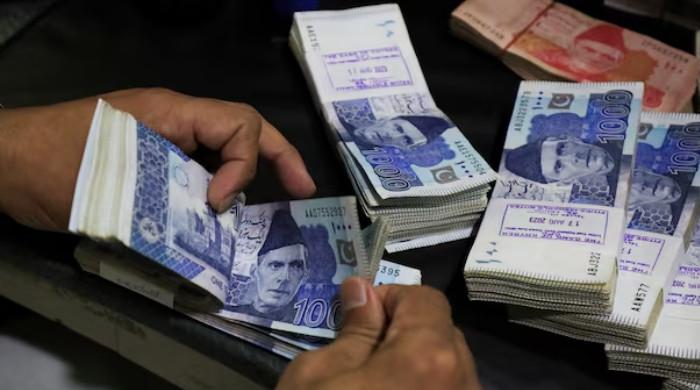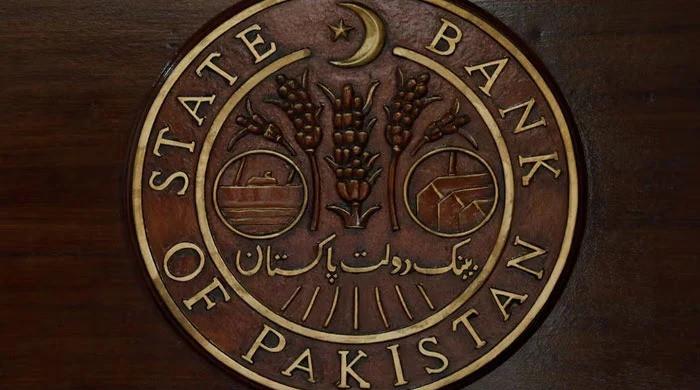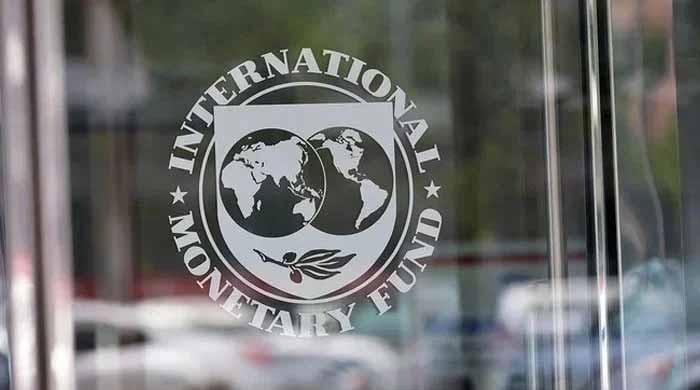ECP bars caretakers from FBR overhaul over limited mandate
Caretaker PM told by ECP that their role limited to day-to-day matters necessary to run government affairs
January 31, 2024
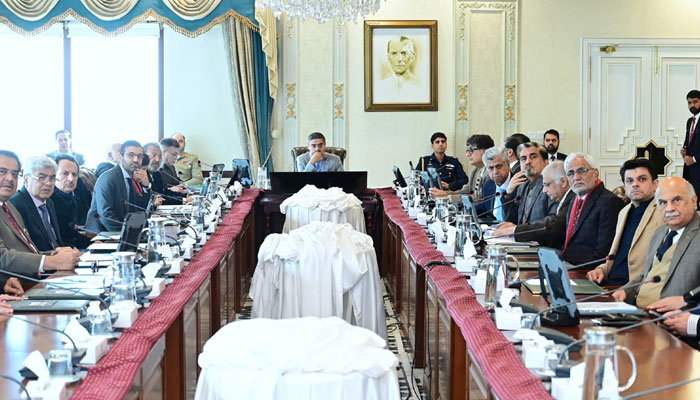
- ECP’s directive comes after cabinet approved FBR restructuring plan.
- Legislation is to be done by next elected govt: official.
- Plan seeks to increase FBR’s tax-to-GDP ratio to 18% in 5 years.
The caretaker federal government has been barred from carrying out structural reforms in the Federal Board of Revenue (FBR) and directed to leave the matter to the elected rulers, The News reported on Wednesday.
The Election Commission of Pakistan (ECP) on Tuesday reminded caretaker Prime Minister Anwaar-ul-Haq Kakar-led government that their role was limited to addressing the day-to-day matters necessary to run the government, emphasising that they should avoid making major policy decisions.
The ECP’s directive comes hours after the federal cabinet approved the FBR restructuring and digitisation amid reservations of its senior officials and fears of a clash of interests.
Chaired by PM Kakar, the cabinet approved the FBR restructuring and digitisation on a summary forwarded by the Revenue Division.
When this reporter asked a top government functionary if there was any possibility of promulgation an ordinance to implement the restructuring plan on immediate basis and leaving the legislation matter to the upcoming government, he replied, “No. I think, the legislation is to be done by the next elected government. However, it will depend on the official minutes to be issued by the cabinet for today’s meeting”.
The cabinet approved in principle to forward the revamp plan to the coming government.
There is no doubt that the FBR is in dire need of reformation but it was not understandable why the caretaker minister for finance is pursuing it in such haste.
Almost the entire December was wasted on this futile exercise. The secretary Revenue Division/chairman FBR finalised the summary and forwarded it to the minister for finance in the wee hours of Tuesday after receiving the official minutes of the last cabinet meeting.
The caretaker premier also made all-out efforts to convince the cabinet members as well as other stakeholders on the reform plan but remained unable to develop consensus.
Ultimately, the summary was approved in principle but for all practical purposes, the cabinet granted its nod to the third point of official minutes of the last cabinet meeting, suggesting that its implementation and legislation be left to the next government.
After the ECP directive, the Ministry of Finance kept mum and preferred not to issue any official statement till the filing of this report in the evening.
The letter, available with The News, was written by ECP Secretary Dr Syed Asif Hussain to caretaker prime minister’s secretary Capt (retd) Muhammad Khurram Agha.
The letter referred to the constitutional provisions and relevant laws, including the Elections Act 2017.
“In continuation of this officer’s letter of the same number dated January 27, 2024, I would like to draw your attention to the editorial in annex-A and news items in annex-B that appeared in daily Dawn and daily The News, respectively. These reports suggest that the federal government is undertaking a major decision to revamp the FBR through an ordinance, along with other concerns,” the letter reads.
It continues, “Improvement and reformation of state-owned institutions are undoubtedly core responsibilities of the government to enhance overall performance. However, under the constitutional scheme and legislative intent, as expressed in Section 230 of the Elections Act 2017, the functions of the caretaker government are defined. Attention is specifically invited to Sections 230 (1) (a) and (c) and 230 (2) (a) and (b) of the act reproduced below.
“Section 230: Functions of Caretaker Government. — (1) A caretaker government shall—(a) perform its functions to attend to day-to-day matters necessary to run the affairs of the government;
“(c) restrict itself to activities that are routine, non-controversial, urgent, in the public interest, and reversible by the future government elected after the elections; and
“(2) The caretaker government shall not—(a) take major policy decisions except on urgent matters; (b) make any decision or a policy that may have an effect on or preempt the exercise of authority by the future elected government.”
The letter concludes that the planned FBR overhaul falls under the above statutory provisions and constitutes a major policy decision, which is the prerogative of the elected government.
The ECP, responsible for conducting elections under Article 218(3) of the Constitution, is obligated to highlight the role and actions that the caretaker government should refrain from under Section 230 of the aforementioned act.
“In light of the above, I have been directed to convey that the honourable caretaker prime minister of Pakistan may be advised not to pursue major reforms in FBR and to keep it pending for consideration by the newly elected government following the general elections in 2024,” the ECP secretary states in the letter.
Salient features of FBR reforms
Caretaker Minister for Finance Dr Shamshad Akhtar Tuesday night shared the salient features of the plan under which the FBR’s tax to GDP ratio would be jacked up to 18% in five years till FY2029.
In her televised speech Tuesday night, Shamshad did not mention anything related to the ECP letter.
She said the federal cabinet, on January 30, approved the FBR restructuring and digitisation plan in preparation and under deliberation since September 2023.
The plan, a home-grown product, is the outcome of considerable consultations among the minister for finance, FBR chairman and members along with independent highly qualified tax experts.
The plan does draw on substantive research and recommendations of the long-standing multilateral engagement and technical assistance studies that were sponsored by the FBR over the years.
The caretaker government recognises the macroeconomic challenges, and it has prioritised critical reforms, particularly the urgency for domestic resource mobilisation.
Tax-to-GDP ratio on decline
Pakistan’s tax-to-GDP ratio has been declining, with FBR tax/GDP ratio barely 8.5% in 2022/23, while country’s tax capacity has remained largely around 22% of GDP including the taxes under purview of provinces that yield barely 1% of GDP revenues.
The number of taxpayers in Pakistan is barely 2.3 million. Corporate tax filers are 0.8% of commercial and industrial electricity users and GST registered entities are barely 13% of the 1.4 million taxpayers.
The FBR’s ability to tap tax sources under its jurisdiction has been constrained by complex and opaque tax administration, top heavy management that lacks delegation and accountability, excessively large pool of staff and conflict of interest between policy and collection functions that are under one roof.
High level of policy gaps exist because of high revenue sources assigned to provinces and large undocumented sector have served as an impediment. In parallel, compliance tax gap is large too more because of lack of failure to bring in tax net of what is feasible to achieve such as wholesalers and service providers, etc.
The overwhelming undocumented sector, absence of data and the lack of digital integration, tax-evasion and avoidance because of loopholes in legal and administrative system and integrity issues are some of the critical gaps in tax administration.





